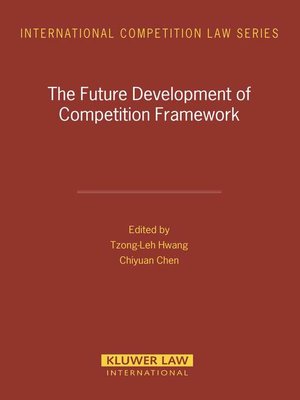The Future Development of Competition Framework
ebook ∣ International Competition Law
By Tzong-Leh Hwang

Sign up to save your library
With an OverDrive account, you can save your favorite libraries for at-a-glance information about availability. Find out more about OverDrive accounts.
Find this title in Libby, the library reading app by OverDrive.



Search for a digital library with this title
Title found at these libraries:
| Library Name | Distance |
|---|---|
| Loading... |
In the march of economic globalization it has become increasingly apparent that divergence in competition policy from one country to another is a major stumbling block. More than any other factor, an international consensus of competition laws is sure to facilitate the clear working interaction among trade, investment, intellectual property rights, and technology transfer that economic progress demands. This forward-looking book offers presents insightful perspectives on how this consensus may be achieved.
The Future Development of Competition Framework presents papers and speeches by well-known competition law practitioners versed in competition law and policy, including representatives of national competition authorities. They came from a variety of countries - including France, Germany, Canada, Mexico, Indonesia, Malaysia, Russia, Japan, Australia, Taiwan, Korea and the United States - to attend a 2003 conference sponsored by the Taiwan Fair Trade Commission. The book reproduces texts of the various contributions to the conference, including a roundtable discussion. Among the topics addressed are the following:
Although they are especially valuable for their concentration on the Asia Pacific countries, these discussions will be of incalculable value to practitioners and academics everywhere who are involved in any of the interconnected branches of economic law or policy covered here.







